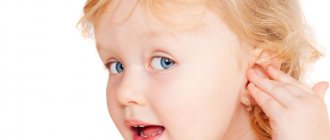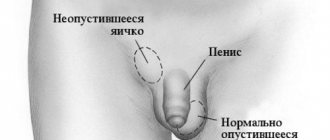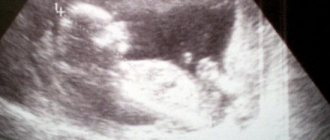The best age for pregnancy: the versatility of the issue
The best age for pregnancy of the first child is the age of 21-26 years in physiological terms. However, this does not mean at all that at the age of 30 the expectant mother will necessarily have any problems. Medical practice shows that with age, the risk of various complications increases.
There are situations when pregnancy occurs at the age of 13-16 years and, most often, this happens unplanned. The young mother herself is still a child, and the father does not have the necessary material goods to support the family.
All this negatively affects the state of the mother’s nervous system, and stress can negatively affect the developing fetus. On the medical side, the girl’s body is still developing, and the reproductive system is not yet fully formed. Young girls do not yet have stable hormonal levels and hormones such as progesterone and estrogen may be produced in insufficient quantities. This may cause deviations in the formation of the placenta.
Doctors say that pregnancy at an early age, although possible, is still undesirable. In addition, at 13-16 years of age there is a high risk of bleeding and various complications during labor.
Childbirth after 35 years is increasingly common among modern women. Despite the fact that medicine is doing impossible things today, pregnancy at this age is still considered a serious risk. Problems can appear both during pregnancy and during childbirth. There is a high risk of developing complications such as lack of contractions, placental abruption, ruptures of the soft birth canal and bleeding.
Often, women’s desire to have a child is so strong that they are not even stopped by age after 35 and older. In most patients, after 40-45 years of age, infertility is detected, and the risk of miscarriage increases several times. During pregnancy, diseases such as placental abruption, gestational diabetes mellitus and exacerbation of chronic diseases may develop.
In fact, the age after 40-45 years is considered a dangerous period for pregnancy, therefore, if you want to become parents, you must undergo a thorough medical examination. Each woman’s body is individual, so it is quite difficult to predict how pregnancy will proceed. At the same time, doctors note that when the first child is born after 40-45 years, menopause occurs much later and the risk of malignant tumors of the genital organs is reduced.
Features of early pregnancy
At a young age, women have no (or almost no) chronic diseases.
Muscles, skin, ligaments, cartilage at this age are very elastic. This minimizes the likelihood of birth injuries. Even girls with a narrow pelvis can successfully give birth on their own - the cartilaginous joints of the womb stretch, allowing the baby's head to pass through. Due to the inflated abs and toned pelvic floor muscles, the baby moves more easily through the birth canal.
The first birth of young girls is much faster than that of older women. After them, young mothers quickly recover. With active metabolism, tears and sutures heal quickly, muscles contract and tighten. It is easier for a woman to lose excess weight.
However, pregnancy at 18-25 years old often becomes unexpected news for the expectant mother. As a rule, at this time, girls are busy studying or actively working on the material aspect of their own lives.
Thus, having a child at a period of physical maturity has a number of advantages:
- the chances of having a healthy baby are higher;
- pregnancy is easier;
- labor proceeds faster;
- the body is restored in an accelerated manner (injuries heal, weight, skin turgor, and hormonal levels are normalized);
- there is time to think and plan a second pregnancy;
- the young mother will still have time to make a career;
- relationships between children and young parents are closer.
Ideal age for childbirth according to scientific and physiological criteria
Experts say that, theoretically, a woman can give birth provided that she has menstruation and there are no contraindications. At the same time, do not forget about common sense.
Gynecologists agree that the optimal age for the birth of a child is considered to be 18-26 years old. The fact is that it is during this period that the female reproductive system and the entire body are in their prime. By this age, the process of formation of the organs of the genitourinary system has already been completed and the ovaries are working at full capacity. This allows you to maintain normal levels of hormones in the body, which is considered one of the important conditions for a successful pregnancy. By the age of 18-26, the muscles of the vagina and pelvic area are already well extensible and elastic.
It must be remembered that at this age the pelvic bones are quite mobile, which significantly facilitates the process of labor as the head passes through the pelvis.
The condition of the abdominal muscles also plays an important role, and at the age of 18-26 they are sufficiently trained, which helps to quickly push out the fetus during pushing. In addition, at this age, a woman still does not have chronic pathologies that can affect the course of pregnancy and childbirth.
From the age of 25, the aging process begins in a woman’s body. This moment can be delayed with the help of proper nutrition, a healthy lifestyle and a rational alternation of sleep and rest. However, there is no escape from nature, and already at the age of 30, many patients experience a lack of progesterone in the body.
Accordingly, testosterone levels begin to increase, which can interfere with normal pregnancy. All this leads to the conclusion that the most suitable age for having a child is considered to be 18-26 years old, and 18-35 years old is considered relatively safe.
At what age is it best to get pregnant and become a mother?
In fact, each has its own advantages and disadvantages in the context of pregnancy and childbirth. At 20, you're in great shape and have a lot of enthusiasm and energy to care for your child, but your professional and financial situation is unlikely to be stable yet. Or maybe you still don’t have enough patience, you’re still running somewhere.
On the other hand, if you decide to have a child as an adult, you will have the experience and a comfortable living situation, but you will likely have a harder time dealing with pregnancy and childbirth, as well as the subsequent stress of caring for a child.
Pregnancy at the age of 20-24 years
This age is biologically the best to get pregnant. The best because it is the most prolific. Your periods are regular, mostly ovulatory. During pregnancy, the risk of hypertension or gestational diabetes is low, and new mothers tolerate pregnancy illnesses well. This group also has the lowest rate of miscarriage (below 9.5%) and is also the least likely to have a child with a genetic defect (compared to older women).
However, few women choose to have a child at this age. This is not surprising - hardly anyone at this stage of life is already financially independent. Perhaps you are involved in studies, the beginning of your professional career, social life, appearance, passion and self-development are important to you. You think you still have time for children and serious commitments.
Pregnancy at the age of 25-29 years
Doctors believe that this is the optimal age for the birth of the first child. You are young, fertile, energetic and full of vitality, and you already have a lot of life experience behind you. You may cope well with pregnancy and childbirth, and you will recover quickly after the baby is born.
Whether you feel ready to have a baby depends largely on your life situation. If you have a partner, a job and a stable living situation, this is probably your time!
The risk of miscarriage is about 10%, which is slightly higher compared to the group of young women. The average birth rate of a child with Down syndrome is 1 in 1250, and with other developmental defects - 1 in 476.
What is the best age to get pregnant and become a mother?
Pregnancy from 30 to 34 years
In your thirties, your fertility declines, and fortunately, these changes happen gradually. If you need fertility treatment, the chances of success are greater than for older women, for example, during IVF, the chance of getting pregnant is about 28%, but for women over 40 this figure drops to 6 to 8%.
You're thriving, you're working, your living situation is stable, and you and your partner are ready for a baby. You are not distracted by ambition or social life. You have a lot of energy and life knowledge to cope with all setbacks.
The risk of miscarriage will increase to 11.7%. The birth rate of a child with Down syndrome is 1 in 952, and with other chromosomal aberrations 1 in 385.
Pregnancy at the age of 35-39 years
Although you still feel young and full of energy, when you turn 35, you will have crossed the fertility threshold. From then on, it will begin to decline dynamically. The risk of hypertension also doubles during pregnancy, and gestational diabetes is even three times more common in this age group, especially if the woman was overweight before pregnancy.
There may be pregnancy complications, especially if this is your first child. The chance of delivering a caesarean section more or less doubles (most often because the second stage of labor takes too long and because the ligaments and pelvic structures are no longer flexible enough).
At this age, your doctor will recommend that you undergo prenatal testing because the risk of having a baby with Down syndrome or other chromosomal disorders has increased significantly.
The possibility of conceiving twins and even triplets also increases. This is likely due to hormonal stimulation of the ovaries, which changes as a woman ages, increasing the likelihood that more than one egg will be released. The risk of miscarriage reaches 18%.
However, there are also advantages. First, having a child at this age has been shown to prolong a mother's life, and in addition, research at the University of Southern California has shown that giving birth after age 35 improves the mother's mental abilities.
What is the best age to get pregnant and become a mother?
Pregnancy at the age of 40-44 years
At this age, less than 1% of women become mothers, and the likelihood of becoming pregnant decreases to 5%. You have a lot of life experience, you are a mature woman. You'll likely be a more patient and forgiving mother to your child than, say, a 20-year-old.
Pregnancy will probably make you look younger (if you forget about stress and anxiety). Why is this happening? Well, not only because a mature mother does not want to look like a grandmother to her child, so she takes care of herself. This is also the reason for estrogen, which makes a woman simply radiant.
The course of pregnancy largely depends on the mother’s physical condition, health, and habits. Women who decide to have a child at this age, especially during childbirth, often complain of fatigue and suffer less from pregnancy ailments and hormonal madness. And those who have already given birth are at risk of hemorrhoids, painful pressure on the bladder, and poorer body regeneration after childbirth.
About a third of all pregnancies in women aged 40-44 years end in miscarriage. There are many reasons, such as damage to the egg or poor blood supply to the uterus. There is a high risk of pre-placenta or abruption. Babies born to women in this age group are often born with low birth weight. The risk of birth defects systematically increases (Down syndrome - 1 in 38).
Pregnancy if you are over 45 years old
You are aware of your own limitations, so you are concerned about your health, about yourself and about the unborn child. The percentage of women having children in this age group is 0.03%, and the chances of success in infertility treatment are dramatically reduced.
Women at this age should take special care of their health and look at their cardiovascular system. There is a high risk of developing diabetes or kidney disease. Even if you think you're in great physical shape, carrying a baby will be more difficult for you than if you were twenty years old.
More than half of all pregnancies in women over 45 years of age result in miscarriage. The risk of having a stillborn child doubles, and the likelihood of chromosomal disorders increases sharply (1 child in 30 births has Down syndrome).
After fifty, almost every pregnancy requires careful monitoring and care.
Psychologists: the best age
Psychologists have their own point of view about the best age to give birth to a child, and it is opposite to the statements of obstetricians and gynecologists. Some of them say that it is best to give birth to a child between the ages of 20 and 35, but most European women do so after 35 years. They view late pregnancy as satisfying their ambitions after achieving the desired financial well-being.
Some psychologists say that the best age for pregnancy is after 35 years. By this point, a woman already has a wealth of life experience, has built her career and is prepared for motherhood. In addition, psychologists say that it is by this time that maternal feelings fully awaken in the patient’s soul.
Many gynecologists refute this opinion and testify that many mature women said that they did not feel anything for their child.
The psychological unpreparedness of future parents for the birth of a child is related to physiological age only indirectly, and is largely determined by social experience. Today there are many tests that can be used to determine psychological readiness to become parents.
Psychologists say that it is best to have a child at an age when you can feed him, buy everything he needs and take care of him. Future parents will begin to feel much more confident if, by the time their first child is born, they have an education, a profession, and their experience will be in demand by society.
From the point of view of psychologists and sociologists
Psychologists have a slightly different opinion about pregnancy planning. They argue that the favorable age is when a woman feels psychologically ready to have a child.
We should not forget that the birth of a baby is associated with great responsibility, because he needs constant care and attention. It’s good if you can rely on the help of grandparents, husband, and other loved ones, but in some cases a new mother has to raise the baby herself, and she must be prepared for the difficulties that she will have to face.
Unfortunately, often women, especially in our country, give birth to a child only because of social pressure. The framework available in it dictates the rules according to which you need to give birth immediately after receiving higher or even secondary education. Parents who want to quickly nurse their grandchildren, or husbands who dream of an heir also often urge the woman.
Children of such mothers often grow up either quiet and weak-willed, due to excessive strictness in upbringing, or closed and “wild”, due to a lack of maternal love, or overly “loved”, because the woman experiences pangs of conscience due to the lack of warm feelings and tries with all his might to hide it.
Sociological studies show that women who were psychologically unprepared for the birth of a child are more likely to show coldness towards children and experience less love and interest in them. During pregnancy, a woman experiences discomfort, she is tormented by toxicosis, and bleeding occurs more often, because subconsciously she dreams of getting rid of the child.
Therefore, conception should be planned when a woman is physically healthy, fully aware of the responsibility that she has to take upon herself, and has confidence in her financial situation and the man from whom she is going to give birth to a baby.
American sociologist John Mirowski believes that the best time to have your first child is 29 years old, since by this time a woman has time to “live for herself,” get a higher education and build a fairly strong relationship with her husband.
Reviews from those who gave birth at different ages
The best age for pregnancy is different for each woman, but before becoming a mother, you need to think carefully about everything and assess your health. If there is any doubt, it is best to visit a specialist and undergo the necessary examination. When chronic pathologies are identified, one should not panic, since today patients with heart disease, kidney disease and bronchial asthma are successfully becoming mothers.
Women have different opinions about what age is considered optimal for having a child.
- Irina, 45 years old, Moscow: “I became a mother for the first time at 37 years old, and gave birth to my second daughter at 41 years old. Both pregnancies were easy, without any complications, and I gave birth naturally. With each child, I was discharged from the hospital on day 5, and there were no problems with breastfeeding. I believe that a woman needs to feel her body and focus on the state of her health, and not on bare numbers.”
- Alena, 41 years old, Samara: “I gave birth to my first child at 20 years old, and my second at 40, and I want to say that the age difference is big. With my first child, I fluttered like a butterfly, got up at night and gave birth without any problems. The second child appeared after 40 years, and age was already making itself felt. Labor was weak, so they placed an IV and there were many ruptures. I believe that it is best to give birth to a child before the age of 35, when the body is still in its prime. However, I do not mean those women who, due to life circumstances or health reasons, were unable to do this. My statement applies to those who believe that at 40, life is just beginning.”
Pregnancy after 30 years
Just a few years ago, doctors argued that giving birth for the first time at this age was a serious risk. From this period the expression “old-born” appeared. However, nowadays in developed countries you can often find women who decide to become mothers after 30 years of age. Moreover, some experts believe that 30–35 years is the optimal age for having your first child.
What causes this:
It is important to take into account the fact that after 30 years the number of cycles that are not accompanied by ovulation increases. In addition, the receptivity of the uterus to an already fertilized egg is somewhat reduced. In other words, getting pregnant is no longer as easy as before the age of 30.
Most experts say that giving birth for the first time after 30 years is not only difficult, but also dangerous. Possible complications at this age:
If we take into account the high probability of the above complications occurring, we can conclude that the optimal age for the birth of the first child is after 30 years. However, as practice shows, most women do not take risks in vain and raise healthy babies. Thanks to medical technologies, many pathologies can be identified already in the first weeks of the first trimester, which allows all necessary measures to be taken in a timely manner.
Pregnancy under 18 years of age
Possible difficulties Pregnancy is often registered in girls aged 15–18 years. Unplanned, it most often leads to abortion, since many perceive the news of an unborn child as an obstacle to study and entertainment. According to statistics, for every 100 teenage pregnancies there are 70 abortions, 15 spontaneous miscarriages and 15 births.
Development forecasts Early pregnancy is dangerous because the body is not yet fully ready for reproductive function. In 10–15% of young expectant mothers, an anatomically narrow pelvis and increased uterine tone are diagnosed, which can lead to spontaneous miscarriage. Early pregnancy can also cause hormonal problems. At a young age, there is not enough estrogen and progesterone necessary for the normal development of pregnancy. And this can lead to problems with the formation, growth and development of the placenta.
Determining the optimal age
Experts have developed a table that will help every woman understand when it is best for her to give birth to her first child. The indicators are averaged and should not be considered as a guide to action.
Features of the gestational period after 40 years
In most cases, doctors prohibit giving birth for the first time at this age. In addition, the likelihood of pregnancy is very low. But even if conception is successful, there is a risk of miscarriage.
Complications during late pregnancy:
In addition, pregnancy is difficult. The process of childbirth is not easy either. After its completion, all sorts of complications are often diagnosed - from vaginal ruptures to uterine bleeding.
If a woman considers that the best age for the birth of her first child is 40–45 years old, she needs to undergo a full examination of the body. Based on the diagnostic results, the doctor will assess the likelihood of successful pregnancy.
Signs of pregnancy
When a woman begins to plan a child and actively act in this direction, she is focused only on this event: ovulation days are marked in red on the calendar, nuts, spinach and beef liver, rich in folic acid, are always present in her diet, and any problems in the body are considered like pregnancy.
In most cases, a woman in the first weeks of pregnancy is unaware of her current situation.
But there are signs of pregnancy that in the early stages will help the expectant mother understand that she is in an interesting position. Namely:
- there is no regular menstruation;
- nausea, vomiting and dizziness appear, especially in the morning;
- taste preferences change;
- the sensitivity of the mammary glands, especially the nipples, increases, and the color of the areola changes;
- discomfort appears in the abdominal area, it becomes as if full;
- frequent urge to urinate begins;
- vaginal discharge thickens and becomes creamy and odorless;
- mood swings are noted.
But all these signs are indirect and do not always indicate that the woman is pregnant. Today, there are more reliable ways to determine the “interesting position” of the expectant mother:
- blood test for hCG, showing the level of this hormone in the blood on the 10th day after fertilization;
- a rapid test that will show the content of hCG in the urine on the first day of missed menstruation;
- Ultrasound, which will determine the presence of a fertilized egg in the body of the uterus 7 days after the start of a missed period (5th week of pregnancy);
- a vaginal examination by a gynecologist, which allows already in the fifth week of pregnancy to assess the position of the cervix and the color of the mucous membrane, which becomes bluish.
Signs of pregnancy that should prompt you to see a doctor
For a woman who becomes a mother for the first time, all sensations during pregnancy are new. But during this period, it is extremely important for her to know: when the pregnancy is developing normally, and when she should urgently consult a doctor. There are certain pathological situations and signs by which they can be recognized:
- Ectopic pregnancy. This is a situation where the fertilized egg is implanted not in the uterus, but in the fallopian tube. An ectopic pregnancy cannot end successfully and can lead to rupture of this tube and even to the death of the woman herself.. The signs of this pregnancy are:
- sharp pain in the lower abdomen, which is localized on the right or left;
- brown vaginal discharge, and if a tube ruptures, copious red discharge;
- dizziness, nausea, vomiting and even loss of consciousness;
- temperature increase.
- Risk of miscarriage. It happens that in the early stages of pregnancy it is terminated, so you should know the main signs of such a dangerous situation:
- cramping pain in the abdomen and lower back, which intensifies over time, even if the woman lies down and rests;
- discharge with blood from the vagina;
- constant tone of the uterus, that is, the stomach becomes hard, as if it “turns to stone.”
- Frozen pregnancy. It also happens that the fetus dies in the mother’s body, and the sooner it leaves the woman’s body, the fewer negative consequences she will have in the future. Symptoms of a frozen pregnancy are:
- sharp pain in the lower abdomen;
- vaginal discharge is red-brown;
- weakness, dizziness;
- toxicosis disappears.
- Uncontrollable vomiting. Malaise and vomiting, especially in the morning, are considered normal in early pregnancy. If vomiting occurs constantly, then we can talk about a high degree of toxicosis, which can lead to dehydration and disrupt the normal functioning of the liver.. The symptoms of this disease are as follows:
- vomiting occurs up to 20 times a day;
- there is severe weight loss;
- blood pressure decreases;
- urine turns dark yellow.
- Urinary tract diseases. Due to decreased immunity during pregnancy, as well as increased stress on the bladder and kidneys, urinary stagnation and inflammation may occur.. This disease can be sluggish, or it can develop into an acute form:
- when urinating, there is a burning sensation and pain, and the urine is reddish or cloudy;
- I want to go to the toilet, but only a little urine comes out;
- high temperature rises;
- There is pain in the lower back and lower abdomen.
- Violation of the vaginal microflora. Often, reduced immunity leads to inflammatory processes in a woman’s vagina, and if this symptom is overlooked, then an advanced form of inflammation can even lead to miscarriage. The symptoms of this disease are as follows:
- yellow or green vaginal discharge;
- unpleasant smell of rotten fish;
- redness and itching in the perineal area.
Reviews from women
Any woman sooner or later asks herself the question: what are we waiting for her during this nine-month period? And no one can answer this better than an experienced mother who has already experienced all the difficult emotions associated with pregnancy.
My first pregnancy (and only one so far) went well. The first half was just perfect: there was no toxicosis and no signs of pregnancy. I felt good, went on vacation, worked. Then, however, at 20 weeks I discovered the threat of premature birth. I was surgically corrected, stitched under general anesthesia and sent home. Then something happened with blood clotting, it seemed like it was due to anesthesia. And from 24 weeks until the birth, I injected myself directly into the stomach so that the baby would develop normally. But this only sounds scary; in fact, it’s nothing critical. I also continued to work, drove until the birth, and led a normal lifestyle. She carried the baby to term and gave birth to a healthy son. At the time of giving birth, I was 26 years old.
Ksenia
https://deti.mail.ru/forum/v_ozhidanii_chuda/beremennost/kak_protekala_vasha_samaja_pervaja_beremennost/?page=8
I had my first pregnancy and in 36 weeks I gained 25 kg. In the third trimester, my legs began to swell, and the doctor recommended drinking less fluid. At the next test, the doctor saw protein in my urine, in addition, I had high blood pressure and was sent to the maternity hospital. At the maternity hospital they asked: “Don’t birds fly with such pressure?” As a result, I had a child with bilateral pneumonia. I didn’t breathe myself, but on the second day the lung deflated and was inflated. And I spent another week in intensive care because my blood pressure did not drop.
Ket
https://deti.mail.ru/forum/v_ozhidanii_chuda/beremennost/kak_protekala_vasha_samaja_pervaja_beremennost/?page=8
This was my first and last pregnancy. A ravenous appetite awoke. Not a single toxicosis. Every day I flew like a bird to study in Moscow using six types of transport back and forth. My legs didn't swell. I felt great, just like not being pregnant at all. I went to a friend’s birthday party and everyone was shaking over me like I was shaking over a crystal vase. (This made me laugh). Then my husband and I watched a comedy and I laughed so much that I said: “I’m going to give birth to a son,” and after prayer I gave birth in 3 seconds.
Irina Russia
https://deti.mail.ru/forum/v_ozhidanii_chuda/beremennost/kak_protekala_vasha_samaja_pervaja_beremennost/?page=8











